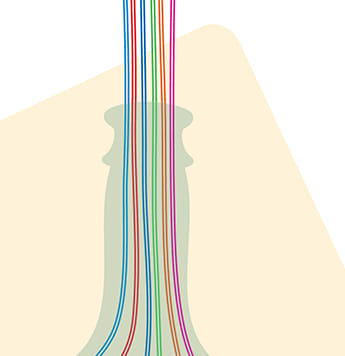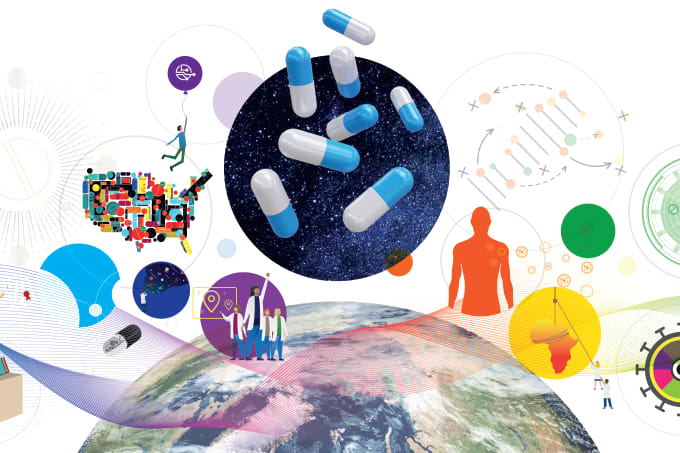The biopharmaceutical industry has made extraordinary strides in recent years, but when compared with other industries – oil or automobile, for instance – you will notice a distinct lack of automation and continuous processes. Although there will still be need for the large stainless steel facilities, the current standard in the biopharma industry, competition in the marketplace is also demanding more efficient and flexible manufacturing models. Continuous approaches can lower costs and speed up processes, as well as allow companies to manufacture several products at the same time and adapt more quickly to market needs, but greater adoption is held back by the requirement for tricky real-time monitoring and control. In considering how the industry might overcome these limitations, the European Union made some funds available (through “Horizon 2020”) for a consortium to find solutions. At Lek Pharmaceuticals, a Sandoz company, we have been puzzling over these problems for some time, so we set out to build a team spanning various countries – involving large and small companies, as well as academics. The European Commission recognized the expertise of our seven-strong consortium members and awarded us the competitive grant. The project is called “Next-generation biopharmaceutical downstream process” (next BioPharm DSP). The main goal of this project is the implementation of a fully integrated manufacturing platform based on continuous chromatography, in combination with single-use disposable technology for all unit operations of downstream process development (DSP). The end goal is to build the platform on a small scale, together with the incorporation of advanced analytical tools, but there are also detailed objectives for the downstream process. For instance, for the primary separation, we are aiming for a substitution of the standard process suites with flocculation and flow filtration – wherein we have already found some beneficial results.
Members of the consortium include:
- Lek Pharmaceuticals, a Sandoz company, Slovenia. Expertise in: biosimilars development, continuous chromatography, perfusion bioprocess, disposable solutions for DSP, final process execution.
- Karlsruhe Institute of Technology, Germany. Expertise in: advanced analytical tools, process modelling, precipitation and continuous chromatography approaches.
- Merck KGaA, Darmstadt, Germany. Expertise in: continuous chromatography, single-use equipment development, flow through chromatography approaches, flocculation for primary separation, continuous virus inactivation.
- National Institute of Chemistry, Slovenia. Expertise in: alternatives for capture step, optimized batch processes, process modelling and advanced analytical tools approaches.
- National Systems, Italy. Expertise in: lab on a chip for particle detection in real time.
- Sandoz GmbH, Austria. Expertise in: biosimilars production, final process support and later implementation of solutions in manufacturing.
- University of Natural Resources and Life Sciences Vienna, Austria. Expertise in: continuous flocculation approaches, continuous precipitation approach to substitute chromatography.
Another important part of the project is the integration of continuous chromatography into the capture step, and the development of new single-use disposable equipment. For other parts of the DSP, we are evaluating different disposable and single-use technologies to replace the classical hard pipes, which includes the testing of different flow approaches and different membrane adsorbers. Finally, the process requires line control, and we are developing advanced analytical tools for in-line monitoring of different quality attributes. We have already filed some patent applications for inventions in this area. We have been able to detect product content in real time while differentiating from impurities – aggregates and HCPs for instance – and additional publications and patent applications are being prepared in other areas of the project. We are confident that our work will culminate in more efficient drug production processes, with reduced costs, and greater productivity, flexibility and competitiveness – ultimately leading to greater patient accessibility and lower burdens on healthcare systems. A second aim is to create a more sustainable process, with a reduction in the amount of chromatography resin, buffers and water used. This will substantially reduce the environmental footprint of the biopharma industry and reduce investment and operating costs for companies. The consortium recently submitted and received approval for its 18-months periodical report and the project was highlighted as a success story by the European Commission Directorate-General for Research and Innovation. This project has received funding from the European Union’s Horizon 2020 research and innovation program under grant agreement No 635557. Read more about the project at: http://nextbiopharmdsp.eu





